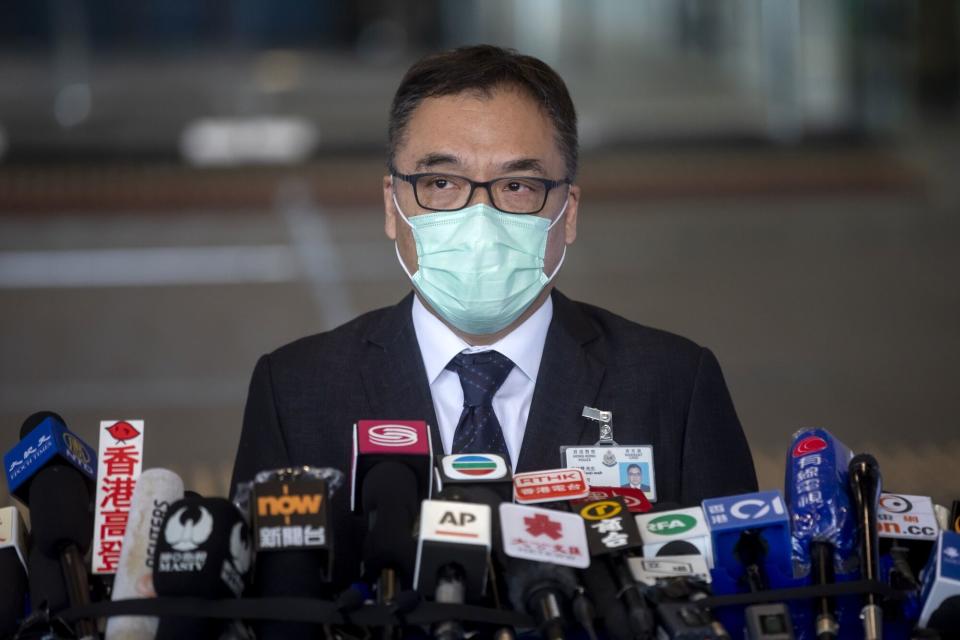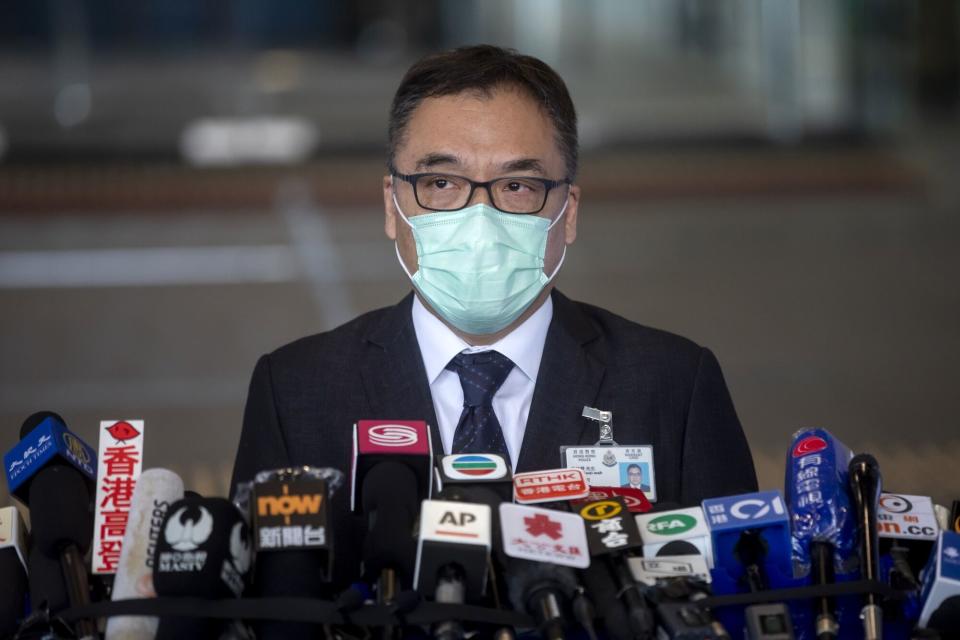Hong Kong Expands Bounties in Hunt for Democracy Activists
(Bloomberg) -- Hong Kong police offered HK$1 million ($128,000) in rewards for information on five dissidents living overseas, stepping up its controversial use of bounties to chase pro-democracy activists in the name of national security.
Most Read from Bloomberg
Netanyahu, Under Pressure Over Hostage Deaths, Vows to Press On
‘Underwater’ Car Loans Signal US Consumers Slammed by High Rates
“All of them, who have already fled overseas, have continued to commit offenses under the national security law that seriously endanger national security,” Li Kwai-wah, chief superintendent of the police’s national security department, said in a briefing Thursday.
The alleged offenses include inciting secession and subversion, and colluding with foreign forces to endanger national security, Li said. The five, including well-known activists Simon Cheng, Frances Hui and Joey Siu, betrayed their country through acts such as calling for sanctions against Hong Kong officials, Li said.
Hong Kong’s efforts to crack down on activists residing in Western democracies risk inflaming diplomatic ties with countries such as the US and UK. The bounties will also add to concerns that a pressure campaign under the China-imposed security legislation is diminishing freedom of expression in the hub and undermining its international appeal.
Hong Kong is facing several challenges to maintaining its place as an international hub, partly due to China tightening its political grip. China’s financial policymakers are in the city this week meeting bankers to seek ways to bolster its status as a center for investments, deals and talent.
See: China Convenes Hong Kong Bankers in Bid to Revive Financial Hub
Asked about the latest bounties, Matthew Miller, a US State Department spokesman, told reporters in Washington that “we strongly condemn the egregious actions taken by Hong Kong authorities in announcing national security law changes and a new bounty list targeting democracy advocates overseas. That shows blatant disregard for international norms, for democracy and human rights.”
Hong Kong’s Security Bureau said in a statement on Thursday that the security law “has extraterritorial effect,” so “the police have the responsibility to pursue those who have allegedly committed offenses” outside of the city.
In July, authorities placed similar HK$1 million bounties on eight democracy activists living abroad. The move immediately drew criticism from officials in the US, UK and Australia as an attack on freedom of speech and democracy.
Hong Kong Chief Executive John Lee said back then that the activists “will be pursued for life,” and encouraged friends and relatives of the eight to provide information to the police.
The people Hong Kong has placed bounties on are unlikely to ever return to the city, making their prospect of arrest in the territory close to zero. Hong Kong authorities could try to persuade other jurisdictions to hand over the individuals.
The UK has previously alerted people in Britain named in a Hong Kong national security case to avoid traveling to countries that have extradition treaties with the Chinese territory.
Thailand has previously bowed to pressure from the Communist Party to deport Uyghurs to China, while Beijing has been accused of pressuring Turkey to do the same. Chinese authorities have also apparently kidnapped individuals living overseas. Hong Kong bookseller Gui Minhai was snatched from his home in Thailand in 2015, before resurfacing in China.
Earlier this month, activist Agnes Chow said she doesn’t intend to return to Hong Kong, provoking a strong reaction from officials. Lee said Chow, who was free on bail amid accusations she violated the national security law, was “a liar” and “a hypocrite,” and repeated such activists would be “pursued for life unless they turn themselves in.”
Chow, 27, also gave details on the things she had to do for the Hong Kong’s secretive national security police to get her passport back. This included an escorted trip into mainland China where she was documented showing her appreciation for the country’s achievements under the Communist Party, writing statements thanking the police and disavowing her past actions.
China last month blasted lawmakers in the US over a bill that could shut the city’s three economic and trade offices in America if Hong Kong isn’t deemed significantly autonomous from Beijing.
The bill, known as the Hong Kong Economic and Trade Office Certification Act, could lead to the end of immunities and exemptions for the city’s US-based trade offices, or have their operations shut down altogether.
--With assistance from Philip Glamann and Jon Herskovitz.
(Updates with more details and freedom of expression concerns)
Most Read from Bloomberg Businessweek
The Biggest Problem With Lab-Grown Chicken Is Growing the Chicken
Jon Corzine, Steve Aoki and the Art of the Second Act on The Businessweek Show
©2023 Bloomberg L.P.




